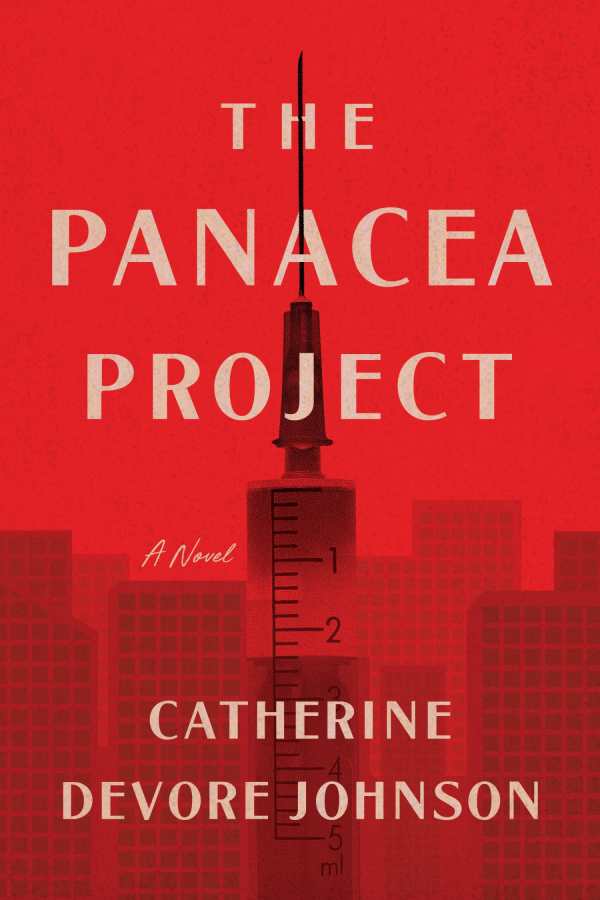The Panacea Project
The Panacea Project is an enthralling medical thriller that lays bare the battle between greed and sacrifice in the struggle to eradicate cancer.
Catherine Devore Johnson’s medical thriller The Panacea Project depicts what a cure for cancer could mean for humanity.
Calla Hammond is a college dropout turned librarian with a routine lifestyle. But then she experiences a seizure and is diagnosed with a brain tumor. All hell breaks loose when the brain tumor vanishes. As can be expected, Calla, who until now was shunned due to a skin condition she was born with (vitiligo), turns into a juicy delicacy to be picked apart, analyzed, and even worshiped.
While the announcement of a potential cure and vaccine for cancer is supposed to be a reason for celebration, it exposes how quickly people will turn to crime out of desperation. Calla finds herself navigating a new world in which people no longer stare in repulsion, but now stare in admiration and even beg to be touched by her. Politics soon finds its way into the medical field as the debate over what to do with this discovery ensues, and people in high positions try to milk her for all she is worth.
The beginning of the book, which provides some background information about Calla’s everyday life before the discovery of the cancer-curing ability of her blood, segues into her life as a lab rat. The plot unfolds at a consistent and credible pace while maintaining its suspense, which heightens toward the end, as Calla’s fate is revealed and all pressing questions are answered.
Cliffhangers and shocking revelations drive the story, whose prose is engaging and evokes emotions with ease. Characters are vivified in telling ways: Reuben, who becomes Calla’s nurse and friend during the research program at St. Peregrine’s Cancer Center, is described as gentle and compassionate. Similarly, his readiness to defend her from those who believe she is not maximizing her gift shows his fierce loyalty and courage. Calla is also a consistent heroine: when it is initially suggested that she could be the cure for cancer, amid her fear and confusion, she displays eagerness to help in the fight against it. That zeal does not wane when she goes through harrowing experiences at the hands of some rich and greedy people, including medical practitioners. She goes above and beyond in her bid to help eradicate cancer.
The language accentuates the medical nature of the book, lending believability to the story. The term “retina” is used in place of the more common and simple classification of just “eye.” Hospital processes are also described with sufficient detail, and Calla asks the specific questions that a patient or participant in a cancer research program would want to know. There is also a sprinkling of romance that complements the narrative: Calla meets someone who appreciates and admires her for who she is.
The Panacea Project is an enthralling medical thriller that lays bare the battle between greed and sacrifice in the struggle to eradicate cancer.
Reviewed by
Gabriella Harrison
Disclosure: This article is not an endorsement, but a review. The publisher of this book provided free copies of the book and paid a small fee to have their book reviewed by a professional reviewer. Foreword Reviews and Clarion Reviews make no guarantee that the publisher will receive a positive review. Foreword Magazine, Inc. is disclosing this in accordance with the Federal Trade Commission’s 16 CFR, Part 255.

